This reaction essay is part of the Brookings project—”The One Percent Problem: Muslims in the West and the Rise of the New Populists.” We asked each author to reflect on how reading the other working papers helped them think differently about their own country of focus.
The most interesting element of anti-Muslim narratives in Europe is their unifying nature — they can unite religious and secular, liberals and illiberals, Western Europeans and Eastern Europeans.
While negative attitudes toward Muslims are not held by the majority of the population in Western Europe (as a Pew survey recently found), there are growing concerns in a large chunk of the European electorate and political elites around the role of Muslims and Islam in Western societies. These concerns have heightened since the beginning of the 2015 refugee crisis and as a consequence of the wave of ISIS-connected terrorist attacks. Political actors who are both able and willing to exploit these growing concerns are increasingly rewarded in elections.
Of course, in modern democratic societies, the teachings of any religion, including Islam, can be the target of criticism. And the critique of some Muslim practices does not necessarily mean a prejudiced, undifferentiated view of Muslims. Some integration problems are real. It is also possible to distinguish between criticizing Islam on secularist grounds and actual anti-Muslim bigotry, and it is important not to conflate the two. As studies have found, anti-Islam bigots tend to be strongly prejudiced toward Muslims as a whole and embrace a right-wing authoritarian mindset. But secularist critiques of Islam or particular Islamic teachings are not, in of themselves, evidence of prejudice. And such criticisms are not evidence of an authoritarian mindset. Such critics may, for example, have negative feelings towards religion and religiosity in general.
But the political forces I discuss below insist on putting a critique of Islam and Muslims at the center of their political discourse and policy, and paint an overly simplistic, stereotypical, and distorted picture of the teachings of Islam. A good example of this is when Geert Wilders said that the Quran should be banned as a “fascist book” just as Hitler’s Mein Kampf was.
These parties were not born Islamophobic though, as the case studies in this project well illustrate. As Hafez, Heinisch, and Milken describe in their working paper, for example, the Freedom Party of Austria (FPÖ) put the issue of Muslims at the forefront of their politics around 2005. As Manuela Caiani indicates, this shift came even later for the Italian League — a party that, until the leadership of Matteo Salvini, was a Northern Italian secessionist party under the name Northern League, whose main antagonists were the Southern Italians whom they regarded as lazy and a burden on the more developed North. However, Matteo Salvini made it a classical nationalist populist party attempting to appeal to the whole nation, in the process elevating (predominantly Muslim) immigration as the country’s biggest problem. The ambiguously left-wing Five Star Movement in Italy defined Muslim immigration as a threat even later, beginning during the 2015 refugee crisis. Alternative for Germany (AfD) began as an anti-euro, anti-bailout party of conservative economists and university professors but also evolved into a full-scale anti-immigrant party at the time of the refugee crisis, when Germany accepted an unprecedented number of refugees. Viktor Orbán did not dedicate any real attention to the issue of Muslim immigrants (who were mainly absent from Hungary) until the beginning of the refugee crisis when he felt — rightly — that this was a perfect opportunity for him to get out from under a desperate political situation characterized by corruption scandals, mass protests, and falling popularity.
While the majority of the European voters, as indicated above, do not share Islamophobic views, negative attitudes have definitely been on the rise across Europe since the beginning of the refugee crisis. For example, a German study conducted in 2018 found that 44 percent of Germans agreed that Muslim immigration to Germany should be banned — an increase from 36.5 percent four years prior. And politics matters: unsurprisingly, AfD voters demonstrated higher levels of anti-Muslim sentiment. Rising opposition to Muslims was also evident in France, particularly after the Charlie Hebdo attacks in 2015. Many assumed (correctly) that these developments would lead to a breakthrough for populist parties.
Luckily, the European Parliament election results in May 2019 showed that the political upside of anti-Muslim politics is not unlimited, with overall vote share for the nationalist right (the ratio of populist right groups comprising Identity and Democracy (ID)/ Europe of Nations Freedom (ENF), European Conservatives and Reformists (ECR), Europe of Freedom and Direct Democracy (EFDD), and Non-Attached Members (NA) altogether) not exceeding 25 percent, compared to 24 percent in the previous European Parliament elections of 2014. Further, support for populist right forces were highly uneven Europe-wide. For example, while they made considerable gains in some countries, such as in Italy, in other countries they declined, such as in Denmark.
The interesting nature of political Islamophobia is that it works like a magnet, attracting liberal and illiberal, and religious and secular political forces alike, bringing them to the same platform via rather different means.
The interesting nature of political Islamophobia is that it works like a magnet, attracting liberal and illiberal, and religious and secular political forces alike, bringing them to the same platform via rather different means. In other words, Islamophobia can, in practice, be and look quite similar despite lying on different ideological foundations. Some populist right forces, for example, regard Islam as an essential threat to the dominant religion of the country such as in Hungary and Poland. Especially in Poland, and also in Hungary, the predominant rhetorical attack is that Muslims and multiculturalism — both embedded in a liberal universalist ideology — pose an essential threat to traditional Christian (not “Judeo-Christian”) habits and culture.
This is in stark contrast to the rhetoric of the right-wing populist parties of some Northern, more liberal countries (e.g., the Danish People’s Party, the Dutch Freedom Party, or the Sweden Democrats), who promise to defend the liberal, secular values — tolerance of homosexuality, pluralism, gender equality, for example — from Muslims, who, in their opinion, pose a threat to the openness and progressive consensus of such societies. This argumentation can be hypocritical and serve as a democratically acceptable mask for racism. Still, it is an important difference from what we might call religious-traditionalist Islamophobia. Cas Mudde’s notion of the “intolerance of the tolerant”, the rejection of the opposition to liberal values of some Muslims, seems to be a real phenomenon in Western and Northern European countries. It is, however, almost non-existent in Eastern Europe.
Despite this difference, Viktor Orbán is practically a hero of anti-Muslim forces in Sweden and the Netherlands (Geert Wilders recently said he deserves a Nobel Prize), and a growing number Western far-right individual are seeking out safe shelter in Hungary — a country almost without immigrants. So, in this sense, it doesn’t matter that you want to defend a liberal or illiberal society from Islam — my Muslim enemy’s enemy is my friend.
Additionally, the presence of Muslims does not necessarily matter for Islamophobia. There are great differences in the size of Muslim communities in countries where right-wing populist forces are strong. In Hungary, Poland, and Czech Republic, their numbers are negligible (around less than 0.5 percent of the population). There have not been any terrorist attacks carried out by Muslims in these countries. In contrast, in many Western and Northern European countries such as Germany, Austria and France, Muslims constitute five to eight percent of the population, and they have witnessed terrorist attacks.
Muslims are a convenient enemy across otherwise diverse Western European countries, regardless of the reasons they are vilified, and regardless of whether they are even present. Islamophobia is an effective tool with which to strengthen the dominant ideology and identity in a given country — whatever the values of the society may be. A Hungarian researcher, Csaba Dupcsik wrote that gypsies play the role of a magic mirror for Hungarian society: when they look into this mirror they come to see themselves as more beautiful. Muslims play this role of the deceptive magic mirror for most (albeit otherwise different) European societies.
Islam, then, is like a Rorschach-test for the populist right — an ideal projection surface for the image of an enemy. Conservatives, liberals, religious, and secular groups in the West and East can all find enemies in the religion of Islam and its followers. And given that it is such a convenient enemy, we can’t really expect that Islamophobia will easily or quickly fade away even if Muslims in Europe become better integrated.
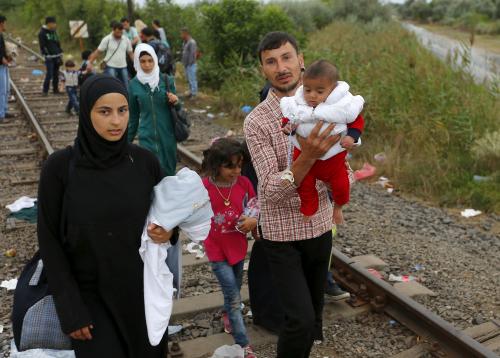
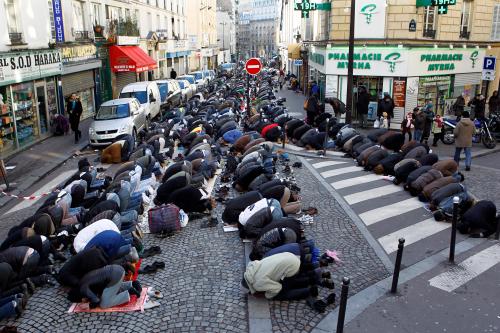

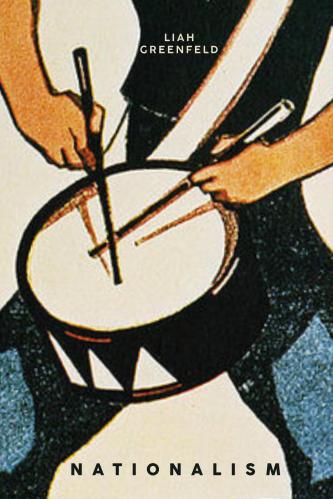
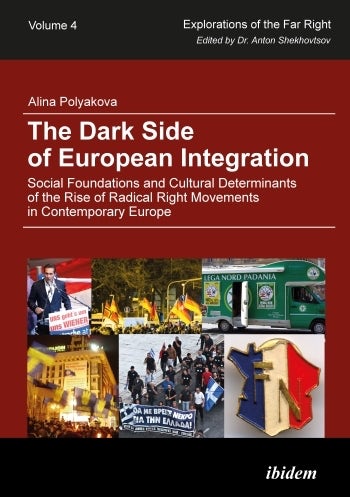

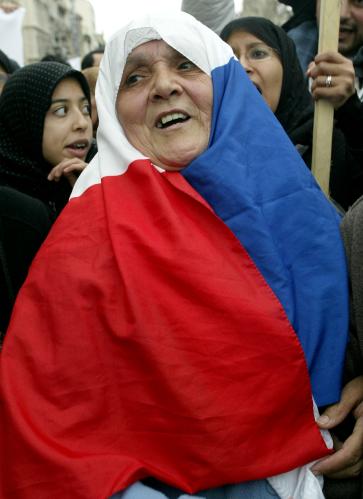
Commentary
Islam as the Rorschach-test for populists
A 'Muslims in the West' reaction essay
December 4, 2019